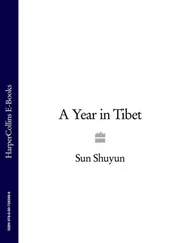Huang's house was in the middle of an open courtyard, with his eldest son occupying the house in the front, his youngest brother at the back, and his two nephews from his third brother on the left and right. The house was bare apart from a bed with a mosquito net, a table with a small black-and-white TV, a few benches, and the stove. He had few visitors and spent his day listening to local operas. ‘I can't see properly because of the snow-blindness I suffered on the Long March,’ he explained as he turned on the set. ‘Her voice is so sweet. But is the actress as ugly as my wife said?’ he asked, with a mischievous smile. His wife was right: she was so ugly I was glad he could not see her properly.
‘I'll keep the treat to myself then,’ Huang said with a good laugh, and switched off the TV. He suggested we sit outside instead to enjoy the autumn sun. He handed me a stool, and a sweet, while popping one in his toothless mouth. ‘I cannot complain, really. This is a good life,’ he said, sucking on the sweet noisily. Looking at Huang, I thought of the Chinese saying: ‘A wife, children, a patch of land and a warm bed make a happy peasant.’ Huang seemed to be its living proof, but the pensioners’ office had told me he joined the Red Army when he was only 14. He must have been very enthusiastic.
‘They kidnapped me,’ he said, raising his voice.
‘Kidnapped?’ It was the first time I had heard the word in this connection.
‘Thunder will strike me if I tell you one false word,’ Huang said. ‘At first they only wanted the strong and handsome ones. The Red Army deserved the best. Then they took the old, the sick, and even a couple of opium addicts. And then it was children. The Party secretary in our village forced everyone with a dick to sign up, whether they were 15 or 50. The Nationalists did not force children to join, but the Red Army did.’ Huang shook his head.
He was the oldest of five boys and two girls. He was 14 in 1934, three years short of the minimum age for enlisting. A woman activist visited his family every day, working on her mother. ‘My boys still wet their beds, and they're shorter than a rifle. How can they fight a war?’ his mother pleaded. ‘Oh, my sister, don't worry. They can be orderlies, or learn the bugle. There are plenty of things to do in the army. They get fed, and clothed too. It takes the burden off you.’
His mother was not convinced – so many men had gone to the front and never come back. And as the Chinese say, a good man is not destined for the army, just like good iron is not for nails. She sent Huang to hide in the mountains with his uncle and twenty other men from the village, but three days later she called him back. The village had a quota of 300 recruits, and the Party secretary would be thrown in jail if he could not meet his target. He had arrested Huang's father and would not release him until either he signed up, or one of his sons did. After a sleepless night, Huang's mother decided to opt for her eldest son – the family had so many mouths to feed and could not do without the father. She packed his favourite rice cakes with ham and a padded jacket that belonged to his father. ‘Take good care of yourself. Quick like a rat and alert like a fox,’ were her last words to Huang.
He had only a week's training, on a winnowing ground. He practised shooting with a stick – every single rifle was needed for the front. Holding the wooden stick, the instructor told them to aim a bit above the target, and he could not understand why. ‘Think of your pee. It's the same idea.’ He got it, but still wasted three of his five precious bullets in the first battle. And he nearly killed himself when he pulled the pin out of his grenade, and stood there watching it fizz as if it were a firecracker. Luckily, the man standing next to him saw it, grabbed it from his hand and threw it out of the trench. It exploded seconds later.
Huang was lucky to survive his first battle. The lack of training accounted for up to 50% of the casualties suffered by the Red Army. The problem was so serious that Liu Buocheng, the Chief of Staff of the Red Army and the Commandant of its academy, felt compelled to address it in a series of articles in Revolution and War. An orderly was sent from his academy to execute a prisoner, but he misfired and shot himself. ‘As a veteran soldier, he was unable to fire accurately at a tied-up enemy! … In battle the White soldiers suffer fewer casualties than the Red Army. Why? Maybe we have braved more enemy fire, but we are also to blame: many of our soldiers do not know how to shoot accurately or use a bayonet.’ 1
If he had to fight, Huang wished he had more bullets. It would give him a better chance of coming through. He had only five for each assault, with three grenades. The bullets were produced in the Red Army's own workshop in a disused temple. Local craftsmen and a few engineers captured from the Nationalists recycled used shells or melted down old copper coins and wire, moulded them into shape, filed them down by hand, and then filled the cartridge with home-made explosives. Huang had trouble loading them into his rifle; when he managed to pull the trigger, it took a minute for them to explode, and even then they did not go far. Often they just tumbled out of the barrel and landed at his feet. Liu Shaoqi, the Commissar of the 3rd Corps and later President of China, called on the arsenal to do a better job. ‘The bullets were so useless. Over 30,000 of them were duds. The rifles were repaired but they went wrong again after firing a single shot.’ 2
Huang could also have done with a better rifle, although he knew many soldiers did not even have one or, worse, a whole platoon shared one. His was a locally made hunting gun, quite temperamental. The trigger got stuck so often that he used the bayonet more. Still, it was dearer than his life, at least in the eyes of his captain. One night they were retreating in a downpour. He slipped and fell into a puddle. Hearing the splash, the captain immediately asked, ‘Is your rifle OK?’ Huang felt really angry. Was the rifle more important than his life? He wanted to smash it, but he knew he would be court-martialled if he did.
He kept asking his captain when he could get a proper rifle. ‘Next time we have a victory,’ he said, ‘you grab whatever you like. That is how we always did it before. You know what we call Chiang Kaishek? Our head of supply.’ The captain began to reminisce about the old days. He remembered what Mao had said right before Chiang's First Campaign: ‘Comrades! With enemy guns we will arm ourselves. With captured enemy artillery we will defend the Soviets! We will destroy them with their own weapons, and if they will only keep up the war against us long enough, we will build up an army of a million workers and peasants! We will strip them of their last rifle, their last bullet.’ 3
The Red Army lured Chiang's troops deep into their base, where the villagers had been evacuated with all their belongings. ‘We needed porters, but none was available; we searched for guides, but none could be found; we sent our own scouts, but they could collect no information. We were groping in the dark.’ 4 Such was the despair of one Nationalist general in the campaign. Chiang's front-line commander, General Zhang Huizang, was keen to prove himself and pushed the furthest, cutting himself off from the flank divisions. He was ambushed by the Red Army on New Year's Eve; he and 15,000 of his men were captured, and the spoils were enormous: 12,000 rifles, light and heavy machine guns, trench mortars, field telephones, a radio set with its operators, and sacks of rice, flour, ham and bacon, as well as the funds Zhang carried for the entire campaign. There was enough medicine for the Red Army hospital for months. The spoils were carried back to the Red Army bases by horses and seven camels, also taken from the Nationalists. Three weeks later Chiang called off the First Campaign.
Читать дальше
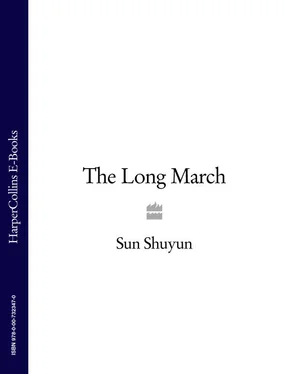
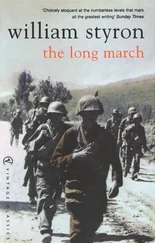
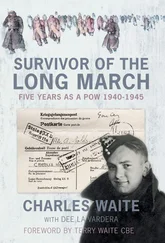
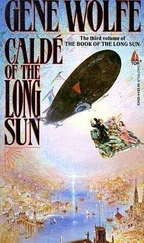
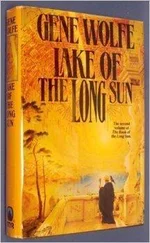


![Джеффри Арчер - The Short, the Long and the Tall [С иллюстрациями]](/books/388600/dzheffri-archer-the-short-the-long-and-the-tall-s-thumb.webp)

